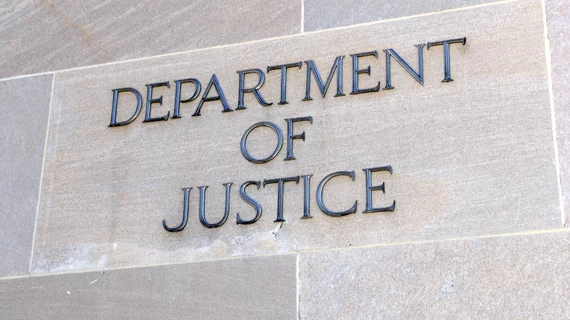DOJ officially sues to block UnitedHealth Group’s $13B acquisition of Change Healthcare
After months of speculation, the Department of Justice officially sued to block UnitedHealth Group’s $13 billion-plus acquisition of radiology vendor Change Healthcare on Thursday.
In the complaint, DOJ officials allege the blockbuster transaction would curb competition in markets for commercial health insurance and technology used to process claims.
“If America’s largest health insurer is permitted to acquire a major rival for critical healthcare claims technologies, it will undermine competition for health insurance and stifle innovation in the employer health insurance markets,” Attorney General Merrick Garland said in a statement. “The Justice Department is committed to challenging anticompetitive mergers, particularly those at the intersection of healthcare and data.”
The DOJ joins numerous other parties in opposing the deal, including Change’s stockholders, the American Medical Association, the American Antitrust Institute and the American Hospital Association. Officials charge that the merger would give UnitedHealth access to a “vast” amount of its rival insurers’ competitively sensitive information. If the deal was finalized, the massive Minnetonka, Minnesota, corporation would be able to wield this data to “gain an unfair advantage and harm competition,” the lawsuit charges. It would also eliminate UnitedHealth’s only major rival for first-pass healthcare claims editing technology, creating a monopoly in the market.
“Change markets itself as a valuable partner for insurers, working closely with them to innovate and problem-solve,” DOJ said in its Feb. 24 announcement. “United’s acquisition of this neutral player would allow United to tilt the playing field in its favor, harming current competition and allowing United to control and distort the course of innovation in this industry for the foreseeable future.”
UnitedHealth Group said Thursday that it plans to fight the lawsuit and continue pursuing the acquisition.
“Change Healthcare and Optum together can increase efficiency and reduce friction in healthcare, producing a better experience and lower costs,” an Optum representative said in a statement. “The department’s deeply flawed position is based on highly speculative theories that do not reflect the realities of the healthcare system. We will defend our case vigorously.”
Reports previously surfaced in August and earlier this month that the feds were considering a suit to stop the sale. First proposed in January 2021, the deal would have UnitedHealth Group paying $8 billion to acquire Nashville-based Change while covering $5 billion more in debt. If finalized, UHG planned to fold Change into its Optum business line.
The National Community Pharmacists Association also previously voiced its opposition to the merger and applauded the DOJ’s move Thursday morning.
“A vertically integrated UnitedHealth-Change would have been a threat to fair competition, patient choice, and independent pharmacies,” CEO B. Douglas Hoey, MBA, said in a statement. “We’re pleased DOJ has heard and is responding to our concerns, along with those also shared by other organizations.”

